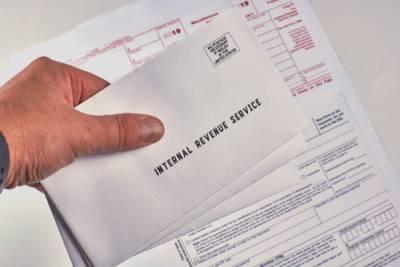Recent Blog Posts
What Happens if I Miss an IRS Examination Appointment?

Many people have felt the sinking feeling that accompanies receiving a letter from the Internal Revenue Service (IRS). While it may be tempting to simply put the letter in a drawer and forget about it, ignoring the IRS can result in serious consequences. If you are contacted by the IRS and asked to make an office audit appointment, you should be sure to schedule the appointment, contact a tax lawyer for help if you need it, and attend the meeting. If you have already missed an audit meeting, you may wonder about the consequences you may face and what steps you can take to protect yourself.
Voluntary Appointments Versus Required Appointments
When the IRS examines a tax return and decides that the tax filer has misfiled, it may send a letter requesting an appointment. The tax filer may respond to the letter and schedule an appointment, or s/he may choose not to. If you have received a letter and did not schedule the appointment, the IRS has the authority to request a legal summons from a judge and demand that you attend it. If you fail to show up at an appointment that you personally scheduled, you will likely get the chance to reschedule the meeting without any major consequences. However if you were required to be at the appointment because of a legal summons and do not show up, the consequences will be much more serious.
What Information Will the IRS Examine During a Tax Audit?
 If you are the subject of an Internal Revenue Service (IRS) audit, you likely have many questions about what the auditing process will entail. The IRS may have chosen you for an audit after comparing your tax return against “norms” for comparable returns, or you may have been selected because your tax returns involved transactions with other taxpayers who have been selected for an audit. The IRS manages audits through the mail and/or in-person interviews. As part of the auditing process, the IRS will request access to certain documents and financial information that supports the income and deductions claimed on your tax return.
If you are the subject of an Internal Revenue Service (IRS) audit, you likely have many questions about what the auditing process will entail. The IRS may have chosen you for an audit after comparing your tax return against “norms” for comparable returns, or you may have been selected because your tax returns involved transactions with other taxpayers who have been selected for an audit. The IRS manages audits through the mail and/or in-person interviews. As part of the auditing process, the IRS will request access to certain documents and financial information that supports the income and deductions claimed on your tax return.
Common Records Requested by the IRS
The documents and records that the IRS will want to examine during an audit can vary depending on your specific circumstances and the basis for the audit. Commonly, the IRS will request copies of:
How Can Innocent Spouse Relief Help Me Avoid Unfair Tax Liability?

Married couples have the option to file a joint tax return instead of separate tax returns. There are often benefits to choosing this filing status, but there can also be drawbacks. Couples who file jointly are “jointly and severally” responsible for any tax liability, interest, or penalties due. The terms “jointly and severally” mean that each spouse is legally responsible for the entire tax debt. When one spouse does not adequately fulfill his or her tax obligations, this can leave the other spouse in serious trouble with the Internal Revenue Service (IRS). Fortunately, there are several ways that a spouse in this situation can be released from tax liability. One of these types of tax relief is called “innocent spouse relief.”
What Is Innocent Spouse Relief?
Imagine this scenario: your wife is a business owner who struggles to keep track of her profits and expenses. When you jointly file your tax returns, the IRS notices that there are inconsistencies with the business income, expenses, and/or deductions. You are audited. As a result, both of you now owe a significant amount of money in back taxes. In situations like this, innocent spouse relief, also called innocent spouse protection, may help a guiltless spouse avoid his or her spouse’s tax liability.
How Is Successor Tax Liability Handled When Buying a Business?
 Making the decision to purchase an existing business can be an exciting and lucrative endeavor. Owning your own business allows you to have a great deal of independence and direction over how the business is run. Being your own boss and watching a business grow and develop can be especially rewarding. Of course, buying a business is not without risk. One of these risks is successor liability for any debts owed by the business, including tax debts.
Making the decision to purchase an existing business can be an exciting and lucrative endeavor. Owning your own business allows you to have a great deal of independence and direction over how the business is run. Being your own boss and watching a business grow and develop can be especially rewarding. Of course, buying a business is not without risk. One of these risks is successor liability for any debts owed by the business, including tax debts.
Stock Purchase Versus Asset Purchase
When you buy an existing business, you have two options: an asset purchase or a stock purchase agreement. A stock purchase allows you to buy most of the seller’s shares, or in the case of an LLC purchase, the membership units. However, assets such as equipment and inventory are still owned by the entity. If you acquire a business through a stock purchase, you will most likely assume all of that company’s liabilities.
Expatriated Individuals May Qualify for a Tax Relief Program

When an individual chooses to move to another country, he or she may relinquish his or her United States citizenship. However, many of these former citizens may not know that they have unfulfilled tax obligations to the United States. Unpaid back taxes can result in additional debt due to accruing interest as well as serious penalties. Fortunately, the Internal Revenue Service (IRS) recently announced the creation of several procedures through which former citizens can be relieved of their U.S. tax responsibilities.
Former Citizens Must Meet Certain Criteria for Tax Relief
If you are an expatriated person who is not currently compliant with U.S. tax laws, you may worry whether or not you can even afford to pay your back taxes. Unfulfilled tax obligations can quickly spiral out of control – especially when a person was not aware that he or she even owed back taxes. In an effort to help former citizens come into compliance with the law, the IRS is allowing qualifying individuals to be relieved of their tax obligations. These individuals must meet certain criteria in order to be eligible for tax relief. The criteria for “Relief Procedures for Certain Former Citizens” include:
How Is the IRS Addressing Expatriation and Post OVDP Compliance?
 In July 2019, the Internal Revenue Service Large Business and International Division announced that six new campaigns are being launched to help noncompliant taxpayers avoid criminal prosecution and/or civil penalties. These campaigns are part of an effort to allow taxpayers who are currently behind on their tax obligations to become compliant with the law. Two such campaigns address obligations related to foreign financial assets and expatriates. If you have unresolved tax issues related to foreign assets or are living outside the United States, these campaigns may be of special interest to you.
In July 2019, the Internal Revenue Service Large Business and International Division announced that six new campaigns are being launched to help noncompliant taxpayers avoid criminal prosecution and/or civil penalties. These campaigns are part of an effort to allow taxpayers who are currently behind on their tax obligations to become compliant with the law. Two such campaigns address obligations related to foreign financial assets and expatriates. If you have unresolved tax issues related to foreign assets or are living outside the United States, these campaigns may be of special interest to you.
The Purpose of the Offshore Voluntary Disclosure Program
U.S. citizens or residents who make money outside the United States are still required to report this income to the Internal Revenue Service. Those who fail to report foreign assets and pay the associated taxes may be subject to civil penalties and even criminal prosecution. In 2009, the IRS created the Offshore Voluntary Disclosure Program (OVDP) as an avenue for taxpayers to avoid criminal liability and resolve outstanding tax debt related to foreign assets. This program ended in 2018. Because many former OVDP participants are still noncompliant with U.S. tax laws, the IRS has launched a number of new campaigns to address compliance issues.
Can I Appeal an IRS Audit?

If you have gone through an IRS audit and received a letter advising you of its findings, chances are the agency has made determinations about which you are not happy. In some cases, the IRS may determine that you owe back taxes, plus interest and penalties. While some taxpayers may agree with the IRS’s findings and pay the assessed amount, you may believe that the findings are incorrect. In these cases, you should be sure to understand your options for asking the IRS to either reconsider or adjust the determinations.
Appealing the IRS’s Decision
Although audits are best handled by working with the IRS during the audit process, it is also possible to appeal the findings of an audit. However, it is important to keep a very good record of the audit process. This is because during an appeal, the record of the audit will be given more weight than any new information that you may wish to introduce. The auditor’s findings are part of the record, so you should make sure to have all of the supporting documentation to show why you disagree with the decision.
What You Should Know About Using 401(k) Money to Buy Your First Home

A 401(k) is a retirement savings plan available for workers whose employers offer or have agreed to sponsor the plan. The plan allows employees to save and invest part of their earned wages or salary before taxes are deducted. Payment of taxes on these retirement savings and contributions, however, is only deferred to when the money is withdrawn from the 401(k) account. It is important to understand the restrictions and taxes that may apply if you are considering using these savings to purchase a home.
Restrictions on 401(k)s
Saving for retirement via a 401(k) plan can be very beneficial. However, it is also important to note that a 401(k) plan has many restrictions set by the Internal Revenue Service (IRS) with which you must comply.
For example, you cannot touch your employer’s contributions immediately. Before you do so, “vesting” must take place. Vesting is the time you must work for your employer before being allowed to access your employer’s portion of contributions to your 401(k). Your own contributions vest immediately.










